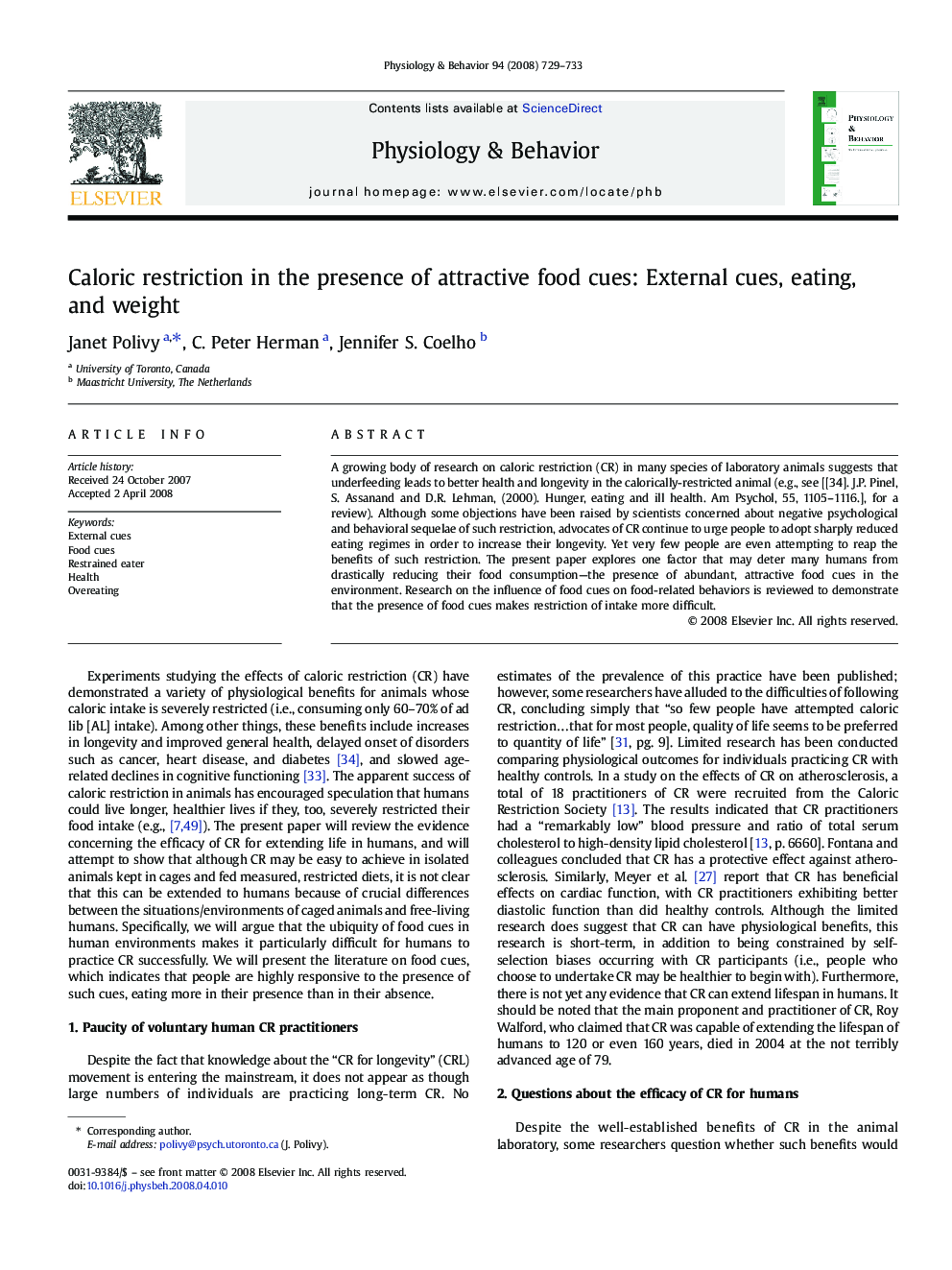| Article ID | Journal | Published Year | Pages | File Type |
|---|---|---|---|---|
| 2845905 | Physiology & Behavior | 2008 | 5 Pages |
A growing body of research on caloric restriction (CR) in many species of laboratory animals suggests that underfeeding leads to better health and longevity in the calorically-restricted animal (e.g., see [[34]. J.P. Pinel, S. Assanand and D.R. Lehman, (2000). Hunger, eating and ill health. Am Psychol, 55, 1105–1116.], for a review). Although some objections have been raised by scientists concerned about negative psychological and behavioral sequelae of such restriction, advocates of CR continue to urge people to adopt sharply reduced eating regimes in order to increase their longevity. Yet very few people are even attempting to reap the benefits of such restriction. The present paper explores one factor that may deter many humans from drastically reducing their food consumption—the presence of abundant, attractive food cues in the environment. Research on the influence of food cues on food-related behaviors is reviewed to demonstrate that the presence of food cues makes restriction of intake more difficult.
